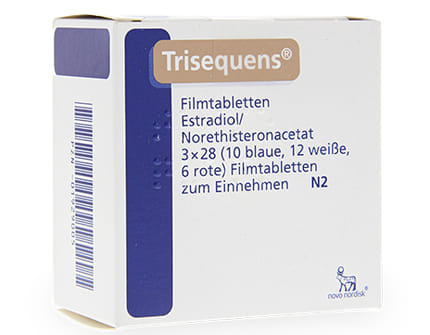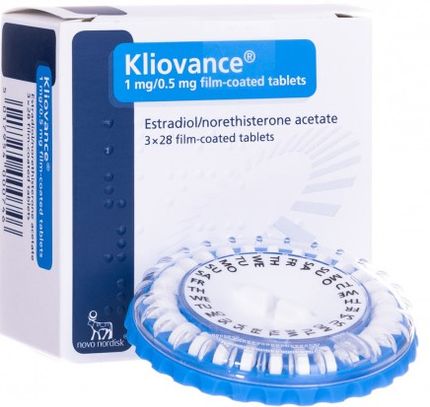

How stress affects your menopausal symptoms (probably more than you think)
In today's society, our stress response is always 'on'. We're busy going about our lives, juggling a multitude of tasks and never-ending to-do lists. Women feel like they have to do everything and often don't give themselves permission to rest, or at least, not enough.
Menopause specialist Suzanne Rouhard explains the effect of stress on women's health during the menopausal transition.
Always ‘on’
Women often have busy and demanding lifestyles, juggling career responsibilities and family life with caring for elderly parents. In addition, we live in a time when smartphones and other mobile devices occupy a large portion of our day and we feel that we must be available, all the time.
All those triggers and being ‘on’ all the time have the same effect on our body as an acute stress response that kicks in when we perceive a threat.
Your body and stress
Genetically, we carry within us a majority of the genetic code of our nomadic ancestors, the hunter-gatherers. Before the transition to agriculture began, people had to deal with life-threatening situations like sabre-toothed tiger attacks.
The brain responds to danger by initiating changes throughout the body almost instantly in a domino effect. The hormones adrenaline and cortisol play a key role in this process. The sympathetic nervous system almost immediately unleashes a fight-or-flight response that primes your body to spring into action and keep you safe.
What helps with stress?













What does adrenaline do?
Adrenaline kickstarts this response. The hormone causes a number of changes in your body so that you can perform optimally and evade danger:
- High blood pressure and increased heart rate
- Your muscles tighten, blood flow to the muscles is increased
- Your pupils dilate
- Your digestive system is suppressed
What does cortisol do?
At the same time, a small gland located at the base of the brain called the pituitary gland receives a signal to produce cortisol.
In the face of danger, cortisol causes blood sugar levels to rise and metabolism to increase. This frees up more energy to deal with the stressful situation. It’s actually a very clever response of your body, and it’s all thanks to cortisol and adrenaline.
Your body and chronic stress
What if your body starts triggering the fight-or-flight response all day long? This is essentially what chronic stress is, and this is where it gets tricky.
Your body doesn't differentiate between stress caused by imminent danger (like a car heading towards you while you're on a pedestrian crossing) and the stress caused by being ‘in action mode'. Your body's reaction may be less severe but it is in a constant state of stress. While imminent danger is often more intense, it is also short-lived.
The flight-or-fight response helps put your body on high alert. Now, you may ask yourself, what’s the harm in that? Well, it’s all about long-term exposure to cortisol.
Reduced bodily function
Long-term exposure to the stress hormone cortisol can negatively affect almost all of your body's important processes.
As mentioned above, it suppresses your digestive system, which means that your food is not digested optimally and nutrients are not absorbed as well – and nutrients are essential to the production of hormones. In my practice, I see a lot of women with digestive problems, such as heartburn, bloating and bowel problems, and this is no coincidence.
Also, your body will want you to increase your intake of carbohydrates to ensure you have enough energy to escape danger by fleeing or fighting. After all, that's what your body thinks it needs: energy to ensure your safety.
If this goes on for too long, your body will no longer be able to maintain your blood sugar levels, reduce inflammation, and keep your immune system working properly. As a result, you will start to feel tired, both mentally and physically, and restless. In short, your mental and physical well-being will suffer.
Reducing stress during menopause
Cortisol has far-reaching effects on your health in the long term. But what exactly does the stress hormone do to your hormones when you go through menopause?
Chronic stress and not getting enough rest cause cortisol levels to go through the roof, throwing your entire hormonal system out of whack. Your body is simply not built to be in a constant state of fight or flight.
The adrenal glands and their functions
The adrenal glands, where cortisol is released, are also our backup system after menopause. They produce oestrogen and progesterone when the ovaries have stopped doing so.
Oestrogen and progesterone are instrumental for fertility. With menopause, your oestrogen and progesterone levels drop as you no longer ovulate, although certain (lower) levels of sex hormones are still needed for your body to function. This means it is important to support your adrenal glands, even more so than before menopause.
When you are under constant pressure and stress, your adrenal glands are faced with a choice: which hormones do we make from the building blocks available to us? From an evolutionary standpoint, our survival instinct takes precedence over everything else. Therefore, in situations of stress, the body will prioritise the production of cortisol over sex hormones.
Your body always knows and does what it needs. Even if this is not convenient in the world we live in today.
Do I have an overactive nervous system?
Today’s 'do it all' generation of women often don’t even realise that they are under constant pressure. They've been living like this for years. The action mode has become their frame of reference.
However, you may have noticed that when you're on holiday your symptoms tend to improve. That says a lot, doesn’t it? On holiday you feel relaxed and your body gets the chance to focus on the production of the sex hormones instead of cortisol. The effect is instantly noticeable.
Other signs of an overactive nervous system:
- You are irritable or have a short fuse
- You need several cups of coffee to wake up
- You laugh less often than you used to
- You feel that you don't have everything under control
- You find yourself stressing out over small things
- You don’t feel like having sex as much as you used to
- You can only relax when you have a glass of wine with dinner
- You are a perfectionist and cannot accept when things don’t go your way
- you sleep badly: you have trouble falling asleep, staying asleep or getting out of bed in the morning
Reducing stress during the menopausal transition
Do you recognise yourself in one or several of the above points? You can take back control of your hormones by simply making more time to relax. Sounds pretty good, right? Read on for more helpful tips on how to calm your nervous system.
Calm your nervous system
Is going through menopause very stressful for you? You can support and calm your nervous system by adjusting your lifestyle and diet. We can also advise on other sources of support for your health during this stage of life. Find out what you can do.

Sources
- Reed SD, Newton KM, Larson JC, Booth-LaForce C, Woods NF, Landis CA, Tolentino E, Carpenter JS, Freeman EW, Joffe H, Anawalt BD, Guthrie KA. (2016). Daily salivary cortisol patterns in midlife women with hot flashes. PMID: 26663024.
- Shabani F, Montazeri M, Abdolalipour S, Mirghafourvand M. (2022). The effect of mindfulness training on stress and sleep quality of postmenopausal women: A systematic review and meta-analysis. PMID: 36346199.
- Hopper SI, Murray SL, Ferrara LR, Singleton JK. (2019). Effectiveness of diaphragmatic breathing for reducing physiological and psychological stress in adults: a quantitative systematic review. PMID: 31436595.


FAQ
What exercises can women do to reduce stress?
If you are stressed or feel a lot of tension in your body, a breathing exercise can help to calm the stress response in your body. Breathe in through your nose as you count to 4, hold your breath, count to 7 and breathe out through your mouth as you count to 8. Repeat this exercise for five to ten minutes. You can find many more breathing exercises on YouTube.







